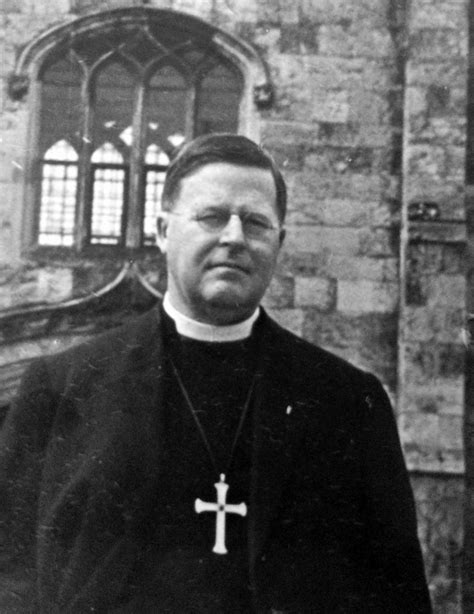A Quote by Kenneth Clark
Gargoyles were the complement to saints; Leonardo's caricatures were complementary to his untiring search for ideal beauty. And gargoyles were the expression of all the passions, the animal forces, the Caliban gruntings and groanings which are left in human nature when the divine has been poured away. Leonardo was less concerned than his Gothic predecessors with the ethereal parts of our nature, and so his caricatures, in their expression of passionate energy, merge imperceptibly into the heroic.
Related Quotes
The idea of beauty which man creates for himself imprints itself on his whole attire, crumples or stiffens his dress, rounds off or squares his gesture, and in the long run even ends by subtly penetrating the very features of his face. Man ends by looking like his ideal self. These engravings can be translated either into beauty or ugliness; in one direction, they become caricatures, in the other, antique statues.
Da Vinci was as great a mechanic and inventor as were Newton and his friends. Yet a glance at his notebooks shows us that what fascinated him about nature was its variety, its infinite adaptability, the fitness and the individuality of all its parts. By contrast what made astronomy a pleasure to Newton was its unity, its singleness, its model of a nature in which the diversified parts were mere disguises for the same blank atoms.
Our Lord's miracles were all essential parts of His one consistent life. They were wrought as evidences not only of His power, but of His mercy. They were throughout moral in their character, and spiritual in the ends contemplated by them. They were in fact embodiments of His whole character; exemplars of His whole teaching, emblems of His whole mission.
His manners were less pure, but his character was equally amiable with that of his father. Twenty-two acknowledged concubines, and a library of sixty-two thousand volumes, attested the variety of his inclinations, and from the productions which he left behind him, it appears that the former as well as the latter were designed for use rather than ostentation.
Through the fall our nature was stripped of divine illumination and resplendence. But the Logos of God had pity upon our disfigurement, and in His compassion He took our nature upon Himself. On Tabor He manifested it to His elect disciples clothed once again most brilliantly. He showed what we once were and what we shall become through Him in the age to come if we choose to live our present life, as far as possible, in accordance with His ways.
Without the slightest doubt there is something through which material and spiritual energy hold togehter and are complementary. In the last analysis, somehow or other, there must be a single energy operating in the world. And the first idea that occurs to us is that the 'soul' must be as it were the focal point of transformation at which, from all the points of nature, the forces of bodies converge, to become interiorised and sublimated in beauty and truth.
The value of money has been settled by general consent to express our wants and our property, as letters were invented to express our ideas; and both these institutions, by giving a more active energy to the powers and passions of human nature, have contributed to multiply the objects they were designed to represent.
Worship is the submission of all our nature to God. It is the quickening of conscience by His holiness; the nourishment of mind with His truth; the purifying of imagination by His Beauty; the opening of the heart to His love; the surrender of will to His purpose - and all of this gathered up in adoration, the most selfless emotion of which our nature is capable and therefore the chief remedy for that self-centeredness which is our original sin and the source of all actual sin.
We cannot look upon our lives as dreams of a dreamer who has no awakening in all time. We have a personality to which matter and force are unmeaning unless related to something infinitely personal, whose nature we have discovered, in some measure, in human love, in the greatness of the good, in the martyrdom of heroic souls, in the ineffable beauty of nature, which can never be a mere physical fact nor anything but an expression of personality.
But the knowledge and love of our Divine Redeemer, of which we were the object from the first moment of His Incarnation, exceed all that the human intellect can hope to grasp. For hardly was He conceived in the womb of the Mother of God, when He began to enjoy the Beatific Vision, and in that vision all the members of His Mystical Body were continually and unceasingly present to Him, and He embraced them with His redeeming love


































